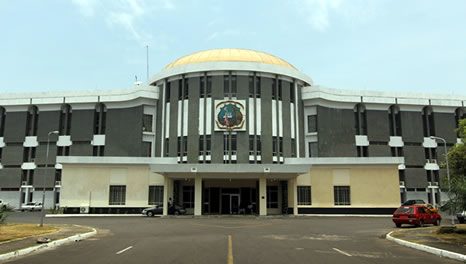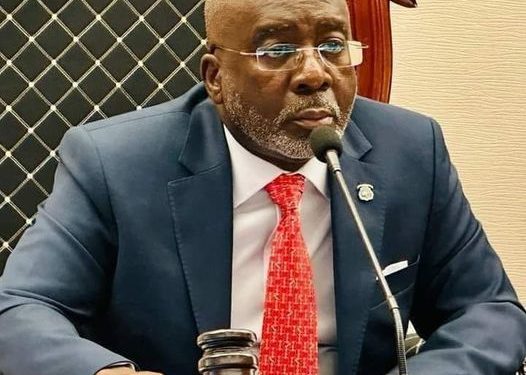By Cheryl Alafia Thomas
The House of Representatives in Liberia is enduring a heated political atmosphere as some lawmakers seek to remove its Speaker, Fonati Jonathan Koffa.
Koffa, a lawmaker from the main opposition Coalition for Democratic Change (CDC) party, is accused of violating the Liberian constitution by engaging in activities contrary to his office. But his supporters believe he is the victim of a plot by the governing Unity Party (UP).
Koffa’s ordeal started on 16th October, after it emerged that 47 fellow lawmakers had signed a resolution petitioning for his removal. The allegations cited in the petition included mistreatment of staffers, financial mismanagement, and abuse of power. Prominent among the allegations was that he is serving as legal representative of public corporations, contrary to the Constitution.
The embattled Speaker has denied the allegations.
Some people believe that the reason for the move to remove him may have to do with his efforts to mount investigations into a damning audit report implicating some government officials.
This political upheaval in the House has caused a sharp division among lawmakers, leading to the formation of two opposing groups, referred to as Majority Bloc, which seek the Speaker’s removal, and Minority Bloc, which opposes it.
According to reports, both camps include members from both the governing party and the opposition.
Last week, former President George Weah, who is the leader of the CDC, accused UP of being behind the “concerted and criminal effort” to remove Koffa, which he said amounted to undermining democratic institutions.
The government hit back at Weah, accusing him of being behind the plot. Acting Information Minister Daniel Sando in a statement claimed that the former President masterminded the plot as part of his effort to cement his control on his party.
But claim of a plot to remove Koffa and the government’s involvement didn’t just come from CDC. In fact, it gained momentum after Independent lawmaker, Representative Luther Collins of Gbarpolu County, publicly accused government officials, including the country’s Vice President Jeremiah Koung of sponsoring it.
Other officials named in the plot by Collins include Deputy Speaker Thomas Fallah, who is also a member of the opposition CDC bench, and Bong County Senator Prince Moye of UP.
Collins claimed that lawmakers, including himself, were offered USD25,000 to support the resolution calling for Koffa’s removal.
In a video he posted online, the Independent lawmaker displayed huge sums of money, claiming that each member of the Majority Bloc had received an advance payment of USD15,000, with the promise of receiving the final instalment after the removal of the Speaker.
Collins further claimed that he agreed to be part of the plot only to expose the plan of those behind it. He is reported to have presented the cash to the Liberian Anti-Corruption Commission amid growing calls for investigation into bribery on the matter.

Senator Darius Dillon of the opposition Liberty Party is among lawmakers calling for probe into the issue, noting that while lawmakers have the right to choose their leaders, the bribery allegations must be investigated.
In Liberia, bribery is a crime that is punishable by up to five years in prison.
Efforts to vote on the impeachment of Speaker Koffa last Thursday failed after his supporters resisted it, leading to a chaotic scene.
The House of Representatives, the lower chamber in the Liberian legislature, comprises 73 members. A two-thirds majority (49), is required to remove the Speaker.
According to reports, the dissenting lawmakers were short by two votes.
But even after the failed attempt, several lawmakers in the Majority Bloc reportedly withdrew their signature. One report put that number at seven.
ManoReporters learnt another attempt to vote on the matter was expected Thursday, 24 October.
This is not the first time Liberian lawmakers have sought to remove a sitting Speaker from office.
In January 2007, former Speaker Edwin Melvin Snowe was removed following bribery allegations against him. The Liberian Supreme Court later reinstated him, on the grounds that the process of his removal was unconstitutional. But he was eventually removed.
Fast forward in 2016, former Speaker Alex Tyler was also removed after members of the House of Representatives signed a resolution calling for his removal.






















